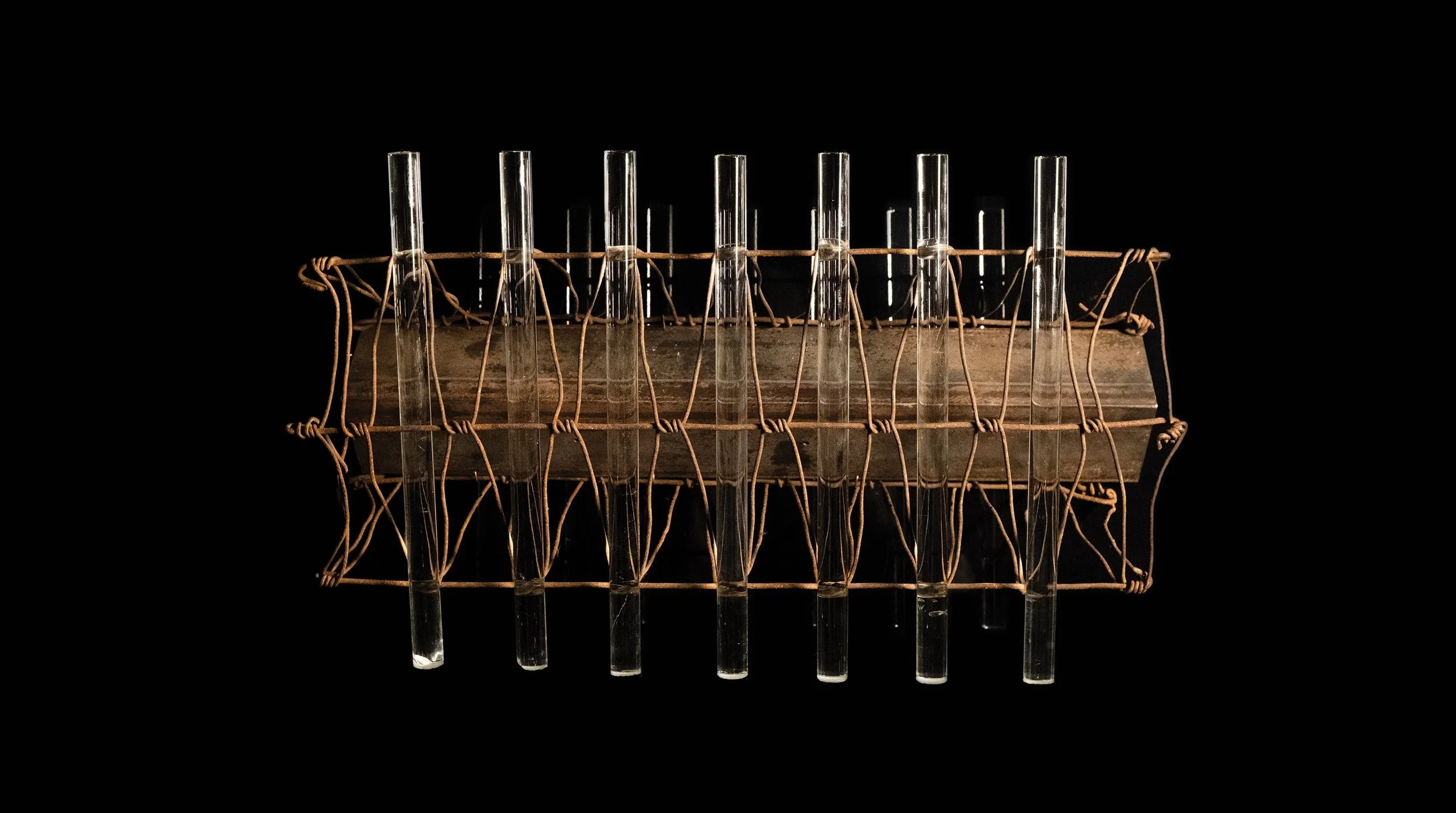Kaleigh Wilder, Ben Hall, and Jaribu Shahid are engaged in a process they call Afro-diasporic excavation. The trio is constantly examining what had to adapt during the Middle Passage in order to survive. Since traditional African languages were forbidden, the languages that remained were passed on through music, among other things. The trio explores these hidden languages in relation to their own experiences as Afro-Americans, recontextualizing their relationships to song, dance, rhythm, language, and their ancestors.
This is particularly obvious in their arrangement of “Kontobilli Wee”, a Ghanaian folk song which uses an instrument called gyil. The gyil is a gourd-resonated xylophone instrument from the Upper West region of Ghana, which Kaleigh studied in 2018 with one of Ghana’s master gyil players, Jerome Balsab. She reintroduced this instrument into her current practice as a way to reconnect what are now disparate languages and form something wholly new, yet rooted in African tradition. The rest of their set juxtaposes cacophony, melody, rhythm, pacing, and density with a freely improvised piece, a composition of Kaleigh’s, and a beautiful folk song of its own by Paul Motian.
An original short film created by Kaleigh Wilder and Julia Yezbick for Kresge Arts in Detroit. Inspired by a family trip to Mississippi, Kaleigh tells the story of lineage, migration, and a return to roots scored by a pensive improvisation.
"These Tears I Cry" is an original composition off of the album "Placemaking" that intentionally brings melancholic sounds and emotions to the fore, holding space for them in order to let them go. This piece offers catharsis, just as tears, or water, are symbolic and literal ways to cleanse and heal not only the physical body, but also the Spirit.
a solo improvisation for the Regenerate! Orchestra. Recorded on November 3, 2021 in Detroit, Michigan.
a project from Gnostikos
Music by Michael Malis, poetry by Kaleigh Wilder, and video by Zara Teicher

